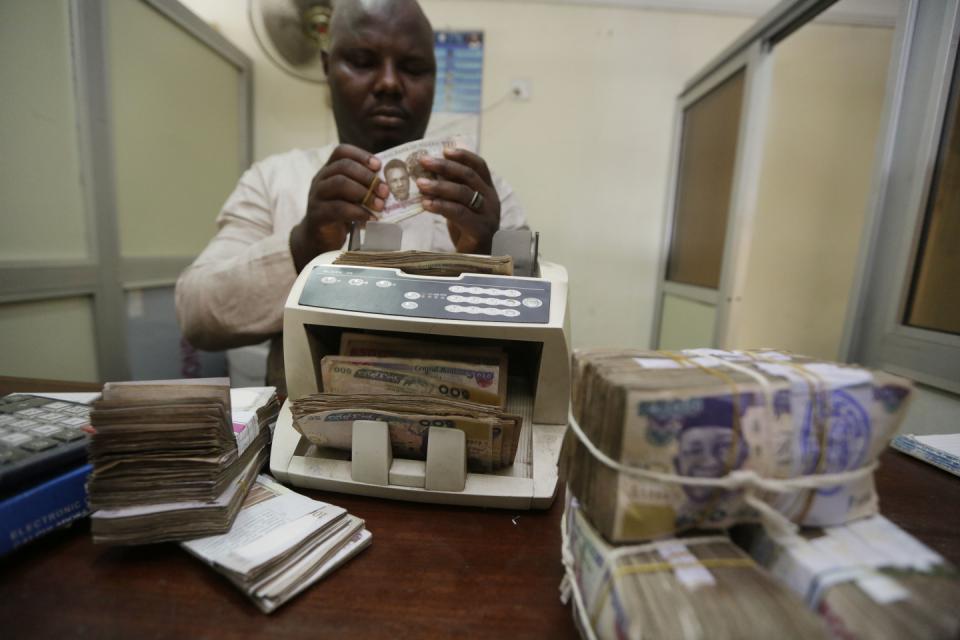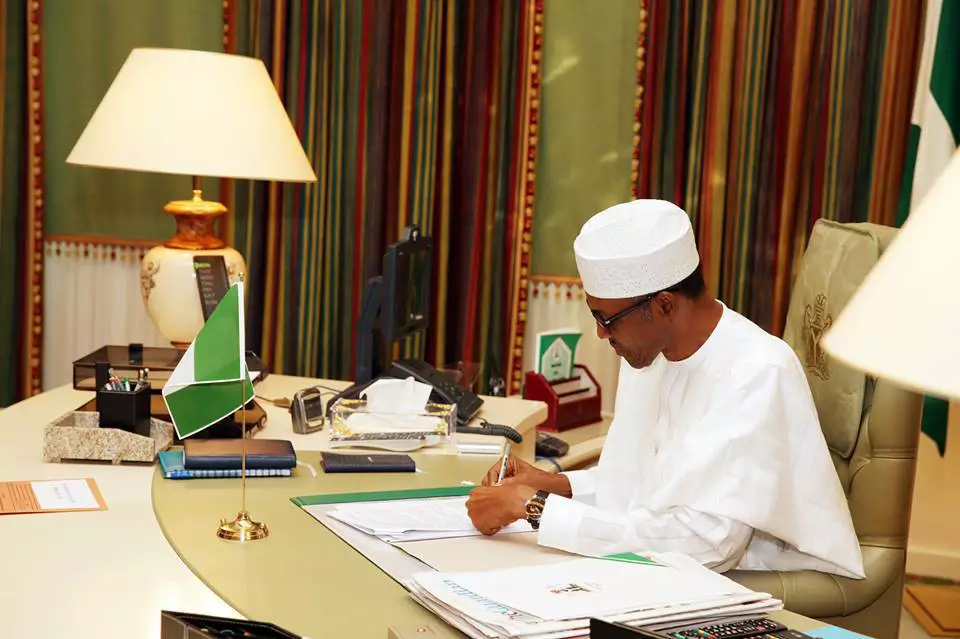Nigeria’s central bank has finally dispensed with a currency peg that economists and businesses had long blamed for exacerbating a slide toward recession in Africa’s largest economy.
The Central Bank of Nigeria had about three weeks ago announced the the introduction of a flexible exchange rate regime, which detailed guidelines were unveiled in Abuja on Wednesday.
The CBN said it would begin “purely” market-driven foreign currency trading next week, abandoning its 16-month peg and setting the stage for the naira to fall sharply.
The bank’s Governor, Mr. Godwin Emefiele, gave the details of the new forex regime in a world press conference in Abuja.
According to him, the the forex market will operate as single market structure.
While setting a minimum transaction participation at $10 million, he said the players would involve Foreign Exchange Primary Dealers(FXPD) and Non-Primary Dealers(NFXPD), adding that the apex bank will not allow a situation whereby the system will be compromised by speculators and rent-seekers and enjoined market participants to support the process.
The Governor further said that liquidity would not be a problem and gave assurance that as long as there is only one window, the outcome will be the rate recognized in the market.
The Foreign Exchange Primary Dealers (FXPDs) system is one whereby interested Authorized Dealers are accorded access to transact FX products directly with the CBN.
According to the Emefiele the main objectives for the establishment of Primary Dealership in FX products are: to achieve exchange rate management policy objectives, to improve the effectiveness of CBN FX market intervention activities, and to enhance market liquidity.
He said the guidelines set the requirements, responsibilities and minimum standards for FXPDs, adding that each FXPD must continuously meet the standards set out in the guidelines and such other standards, rules and regulation as may be prescribed by the CBN from time to time.
The CBN Governor further emphasized that the nature of its relationship with the FXPDs is primarily a counterparty relationship, stressing that market stakeholders are reminded that the designation of an entity as an
FXPD by the CBN shall in no way constitute a public endorsement of the superior financial soundness of that entity over non FXPDs by the CBN nor
should such designation be viewed as a replacement for prudent counterparty risk management and due diligence.
The dollar currently trades at N365 on the parallel market.
At the last MPC meeting held last month, members agreed to hold all policy rates constant and introduce greater flexibility in managing the forex rate. As a result of this, a lot of investors were cautiously optimistic and indeed excited.
The CBN previously pegged the naira at 197 to the U.S. dollar but the currency trades at about half that on the black market as slump in oil revenues has hammered public finances and foreign currency reserves. The new trading rules begin on Monday, Central Bank Governor Godwin Emefiele said.
The change of tack is a “managed float” and puts Nigeria in line with most central banks, including the Bank of England, a senior central bank official told Reuters. Nigeria’s central bank has no target for the naira, he said.
The latest interbank level will be posted on the central bank’s website daily from Monday, the official said, adding: “The old rate of 197 does not exist anymore.”
Following the announcement, three economists estimated the fair value of the naira between 280 and 300 against the dollar, although the black market rate is around 370.
Nigeria, Africa’s largest crude exporter, has resisted devaluing its currency for more than a year despite other major oil producers, including Russia, Kazakhstan and Angola, allowing currences to fall amid lower crude prices.
The central bank will still be able to inject dollars into the market, giving it some control over the exchange rate within the limit of its foreign reserves which fell to $26.7 billion in June, from $42.8 billion in January 2014.
Emefiele hopes opening up trading will ease severe U.S. dollar shortages caused by a slump in oil revenue.
With a likely sharp fall for the naira, Nigerian products will become relatively cheap and imports more expensive, which should stimulate the domestic economy but also lift inflation.
“To improve the dynamics of the market, we will introduce foreign exchange primary dealers who would be registered by the CBN (central bank) to deal directly with the bank for large trade sizes on a two-way quote basis,” Emefiele told reporters.
Nigeria’s stock market gained 3 percent following the announcement.
“This is a major about-turn. The central bank has traditionally favoured a managed rate and preferred a strong currency to contain inflation,” said Gregory Kronsten, head of macroeconomic and fixed income research at FBN Capital in Lagos.
“It seems the CBN is eager the market captures forex from remittances (international money orders) as well as FDI (Foreign Direct Investment),” he said.
- with agency reports














